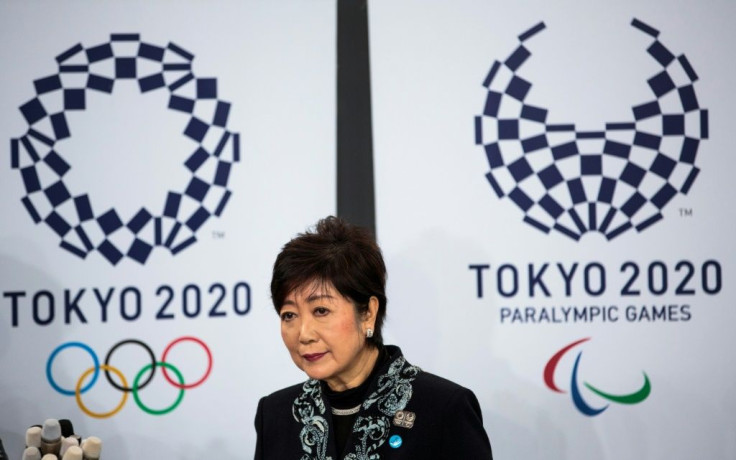Coronavirus Update: Tokyo Olympics 2020 Under Threat, Sports Events Cancelled Or Moved
KEY POINTS
- The Summer Olympic Games to start July 24 in Tokyo will not be cancelled despite Covid-19
- The World Health Organization says there is no case for a contingency plan to cancel or move the Games
- Both in and outside the Olympics, the Covid-19 scare has led to the postponement or movement of sports events
The highest profile casualty of the raging Covid-19 outbreak might yet be the 2020 Summer Olympic Games set to open in Tokyo, Japan on July 24, and Japanese prime minister Abe Shinzo is moving heaven and earth to ensure this disaster doesn't occur.
Since the end of January, Abe has gone on a high-profile media blitz to ensure countries, athletes and millions of Olympic tourists of their safety from Covid-19 in the Summer Games, which start July 24 and ends August 9 at different venues around the country.
Abe's consistent message: the Tokyo Olympics won't be postponed. On February 6, Abe told the Diet, or Japan's parliament, the 2020 Olympics won't be canceled or postponed despite fears about Covid-19 infections.
“I want to make it clear that the Organizing Committee and the International Olympic Committee are not holding any discussions whatsoever about whether or not to hold the Tokyo Games,” Abe emphasized.
Despite this, both in and outside the Olympics, the Covid-19 scare has led to the postponement or movement to another country of a number of international sports events. Among the more recent changes:
* The IOC announced Jordan as hosts of the boxing qualifiers for Asia and Oceania after the event in Wuhan was cancelled. The qualifiers will now take place in Amman from March 3 to 11.
* The International Basketball Federation moved the Feb. 6-9 Tokyo Olympics qualifiers to be held in Foshan to Belgrade, Serbia.
* A four-team women's Olympic qualifying tournament involving China, Australia, Taiwan and Thailand was moved from Wuhan to Australia.
* The World Athletics Indoor Championships scheduled in Nanjing from March 13 to 15 has been postponed to 2021.
* Formula One organizers have postponed the Chinese Grand Prix in Shanghai on April 19.

Only the 1940 Summer Olympic Games have been cancelled, and this because of World War 2. These games were originally slated to be held in Tokyo but Japan withdrew because of the Second Sino-Japanese War. The Games were then awarded to Helsinki, Finland but World War 2 erupted to cancel the Games.
The Zika Virus outbreak in 2016 threatened to cancel the 2016 Summer Olympic Games in Rio de Janeiro, Brazil. The International Olympic Committee (IOC), however, decided to forge ahead despite the global public emergency declared by the World Health Organization over the Zika virus months before the Rio Olympics began.
On the other hand, a number of Olympic qualifying events have either been cancelled or relocated. Olympic organizing committees have created a taskforce to coordinate with national and international health authorities on how to respond to the Covid-19 epidemic.
"We are extremely worried that the spread of the virus could pour cold water on momentum for the Games," said Toshiro Muto, CEO of the Tokyo Organizing Committee (TOC).
Abe, Muto and the IOC have been united in repeatedly saying the Games will be held as scheduled. They have an ally in John Coates, chairman of the International Olympic Committee's Coordination Commission for the 2020 Tokyo Olympics, who on February 14 said there is no danger of Tokyo 2020 being cancelled or moved.
"The advice we have received from the World Health Organization (WHO) is that there is no case for a contingency plan to cancel or move the Games," said Coates. Coates conceded there could be fears among athletes about facing competitors from China, especially athletes involved in contact sports.
Coates also said the IOC is working to defuse fears among individual athletes about their health safety in Tokyo, especially when competing against the Chinese.
"We did talk about that," said Coates. "The IOC is going to ensure (information) kits are sent to all national committees to explain what's happening around the world where Chinese athletes are competing. But I can confirm Tokyo 2020 remains on track."
© Copyright IBTimes 2024. All rights reserved.











